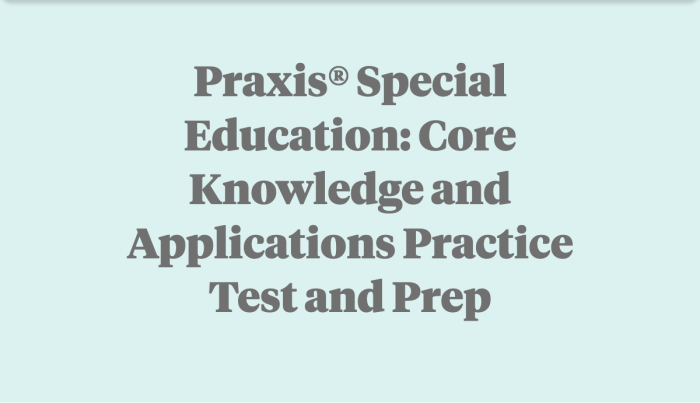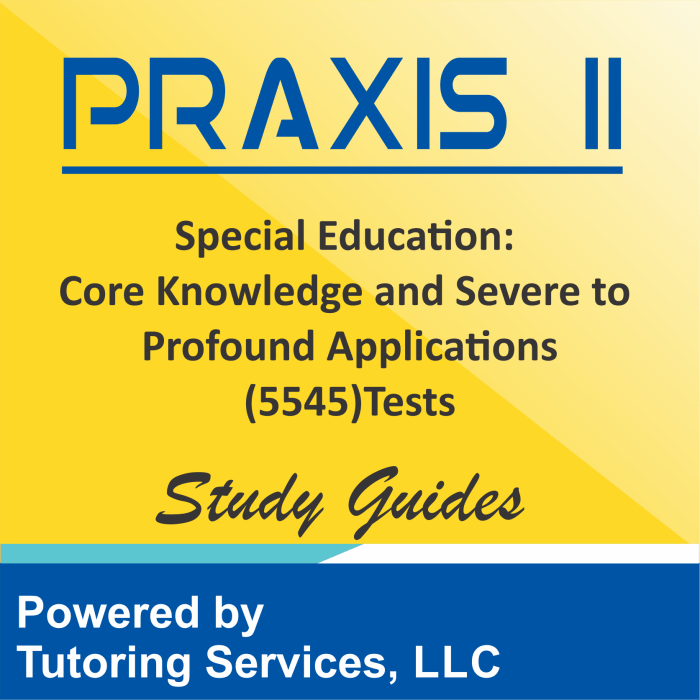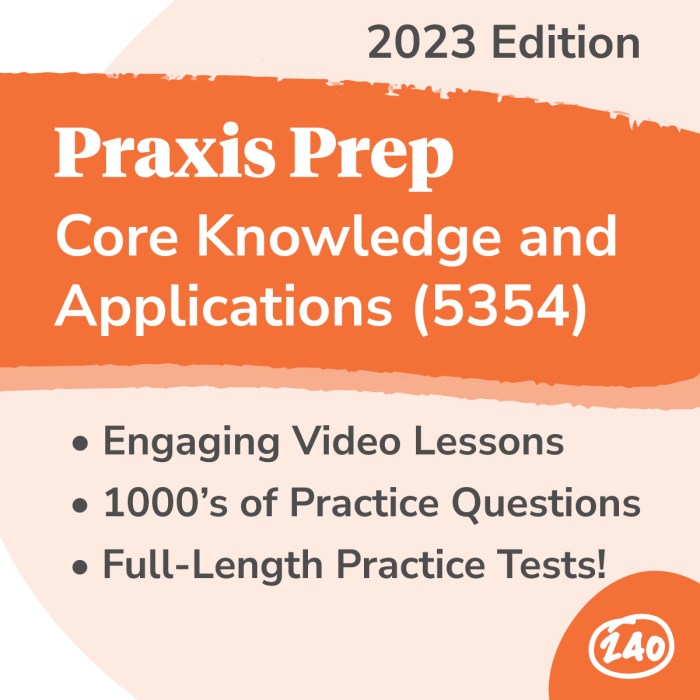Embark on an enriching journey with our Special Education Praxis 5354 Practice Test Free, meticulously crafted to empower you with the knowledge and confidence to conquer this pivotal exam. As you delve into the depths of our comprehensive practice materials, discover a treasure trove of resources that will guide you towards exam success.
Prepare to unravel the intricacies of the Special Education Praxis 5354 exam, as we unveil its structure, content areas, and time constraints. With our expert insights and proven strategies, you will gain a profound understanding of the exam’s demands, equipping you to excel in each section.
Special Education Praxis 5354 Overview: Special Education Praxis 5354 Practice Test Free

The Special Education Praxis 5354 exam is a standardized test designed to assess the knowledge and skills of individuals seeking certification in special education. This exam is required for individuals who wish to teach students with disabilities in various settings, including schools, hospitals, and community-based programs.
The exam consists of 120 multiple-choice questions and has a time limit of 2 hours and 30 minutes. It covers a wide range of content areas related to special education, including:
- Foundations of Special Education
- Assessment
- Instruction
- Collaboration and Advocacy
Practice Test Resources
Numerous free practice test resources are available online to help candidates prepare for the Special Education Praxis 5354 exam. These resources can be found on reputable websites and platforms, such as:
Using practice tests is an effective way to prepare for the exam as they help candidates:
- Identify areas of strength and weakness
- Familiarize themselves with the exam format and question types
- Improve their time management skills
- Increase their confidence on exam day
Test Content Analysis, Special education praxis 5354 practice test free
The Special Education Praxis 5354 exam covers the following major content areas:
- Foundations of Special Education:This content area covers the historical, philosophical, and legal foundations of special education, as well as the characteristics and needs of individuals with disabilities.
- Assessment:This content area focuses on the principles and practices of assessment, including assessment techniques, interpreting assessment results, and developing appropriate educational plans.
- Instruction:This content area covers a range of instructional strategies and techniques for teaching students with disabilities, including differentiated instruction, assistive technology, and behavior management.
- Collaboration and Advocacy:This content area emphasizes the importance of collaboration among professionals and families in supporting students with disabilities, as well as the role of advocates in promoting the rights of individuals with disabilities.
A strong understanding of these content areas is essential for success on the Special Education Praxis 5354 exam.
Exam Preparation Strategies
To effectively prepare for the Special Education Praxis 5354 exam, candidates should consider the following strategies:
- Create a study schedule:Develop a realistic study schedule that allows ample time for content review and practice.
- Use a variety of resources:Utilize textbooks, online resources, and practice tests to supplement your learning.
- Focus on understanding concepts:Don’t just memorize facts; strive to understand the underlying concepts and principles of special education.
- Take practice tests:Practice tests are an invaluable tool for identifying areas of weakness and improving performance.
- Seek support:Join study groups, connect with other candidates, or consult with a tutor if needed.
Sample Practice Questions
| Content Area | Question | Explanation | Answer |
|---|---|---|---|
| Foundations of Special Education | Which of the following is a key principle of the Individuals with Disabilities Education Act (IDEA)? | IDEA emphasizes the importance of providing a free and appropriate public education (FAPE) to all students with disabilities. | FAPE |
| Assessment | What is the purpose of a functional behavioral assessment? | A functional behavioral assessment is used to identify the environmental factors that trigger challenging behaviors and develop strategies to address them. | Identify triggers and develop strategies |
| Instruction | Which instructional strategy is particularly effective for teaching students with learning disabilities? | Multi-sensory instruction engages multiple senses to enhance learning and memory. | Multi-sensory instruction |
| Collaboration and Advocacy | What is the role of an Individualized Education Program (IEP) team? | The IEP team is responsible for developing and implementing an individualized plan for each student with disabilities. | Develop and implement IEP |
Exam Day Tips
To maximize performance on exam day, candidates should follow these tips:
- Arrive on time:Allow ample time to get to the testing center and settle in.
- Bring necessary materials:Bring an acceptable form of identification, pencils, and a calculator (if permitted).
- Manage stress:Take deep breaths and use relaxation techniques to calm your nerves.
- Pace yourself:Allocate your time wisely and don’t spend too much time on any one question.
- Check your work:If time permits, review your answers before submitting them.
Expert Answers
What is the purpose of the Special Education Praxis 5354 exam?
The Special Education Praxis 5354 exam assesses the knowledge and skills required for effective teaching in special education settings.
What is the structure of the Special Education Praxis 5354 exam?
The exam consists of 120 multiple-choice questions, covering four major content areas: Foundations of Special Education, Assessment in Special Education, Instructional Strategies for Students with Disabilities, and Collaboration and Advocacy for Students with Disabilities.
How can I prepare for the Special Education Praxis 5354 exam?
Utilize our comprehensive practice test, study the official ETS study guide, join study groups, and seek guidance from experienced educators.

